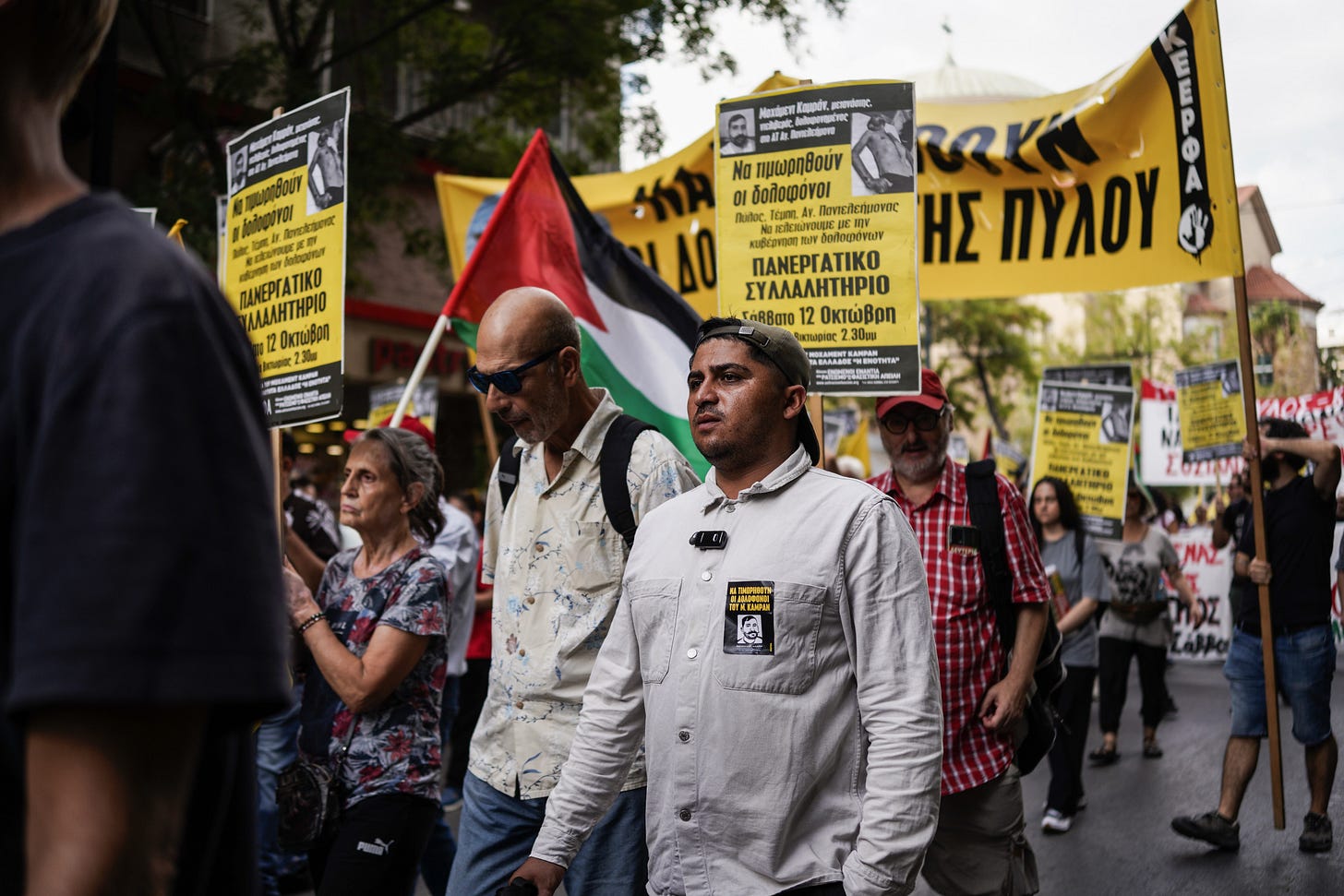Greece Protests, Fixing US Diplomacy, the Nuclear Taboo, and More
The latest at Inkstick Media.

Hello, everyone.
In recent years, experts have welcomed the State Department’s attempts to modernize, a process Secretary of State Antony Blinken has prioritized. But have those attempts optimized the country’s ability to effectively conduct diplomacy? In the latest “Adults in a Room” column, experts weigh in.
Elsewhere, Indonesia has long grappled with violent extremism. President-Elect Prabowo Subianto is a former Minister of Defense. He is not unfamiliar with Indonesia’s security challenges, and concerns about how he has dealt with those challenges in the past overshadow him, argues Emily Froude in new commentary.
That’s not all we’ve got at Inkstick. And if you’re not already, please follow us on Twitter, LinkedIn, Threads, Facebook, Instagram, and YouTube.
“In Greece, Anger over Pakistani Man’s Death in Police Custody” by Patrick Strickland (Oct. 14)
Last month, a Pakistani man named Muhammad Kamran Ashiq died in the custody of the Greek police. The police have provided a convoluted timeline of his final days, at the end of which officers reportedly found Ashiq unconscious in a jail cell. Yet, Ashiq’s relatives and activists have their doubts, pointing to a long history of anti-migrant violence in the country.
“The New Climate Colonialism in Africa” by Joshua Frank (Oct. 15)
While critical minerals might be mined in rural areas of the Congo and Zambia, they must reach the international marketplace to become profitable, which makes Angola and the Lobito Corridor key to Africa’s booming mining industry. But is the fight against climate changing providing cover for acquiring the resources of the Global South?
“Can We Fix American Diplomacy?” by Adults in a Room (Oct. 16)
From his first day in President Joe Biden’s administration, US Secretary of State Antony Blinken espoused his plans for robust State Department modernization — ironing out bureaucratic inefficiencies and refocusing on the most pressing problems of today. Experts weigh in.
“Indonesia Will Have to Make a Choice on Violent Extremism” by Emily Froude (Oct. 16)
Indonesia’s presidential candidates did not discuss the threat of terrorism in-depth during the campaign. Yet, incoming president Prabowo Subianto will have to decide whether to pursue a new, tolerant course or pivot back to a strongman persona.
“In Iraqi Kurdistan, Elections Do Little to Inspire Voters” by Winthrop Rodgers (Oct. 17)
In Iraq’s Kurdish region, there were all the trappings of pre-election fever. Candidates held raucous rallies with firework displays. Party activists drove in flag-waving convoys, blasting campaign music and honking horns until the early hours. The only thing missing was voter enthusiasm.
“Amid Eroding Taboo, the Fight Against Nuclear Weapons Continues” by Jon Letman (Oct. 17)
For nearly seven decades, Nihon Hidankyo, which recently won the Nobel Peace Prize, and other hibakusha have offered sober warnings of nuclear weapons' unparalleled dangers. But even as Nihon Hidankyo earns this distinction, rising political tensions are chipping away at the nuclear taboo.
“Deep Dive: Czeching Populism” by Emily Tamkin (Oct. 18)
Do populist attitudes translate to populist support? Or are they too thin? That’s the question Veronika Dostálová and Vlastimil Havlík pose in their new East European Politics study about the role of populist attitudes in the 2021 Czech legislative elections.
From the desk of Patrick Strickland, managing editor of Inkstick Media.




